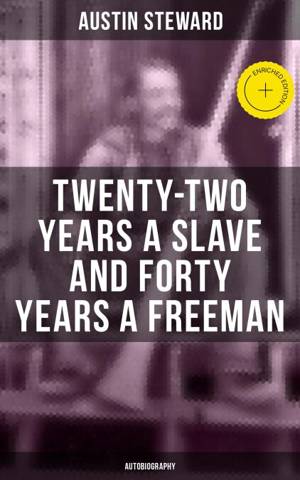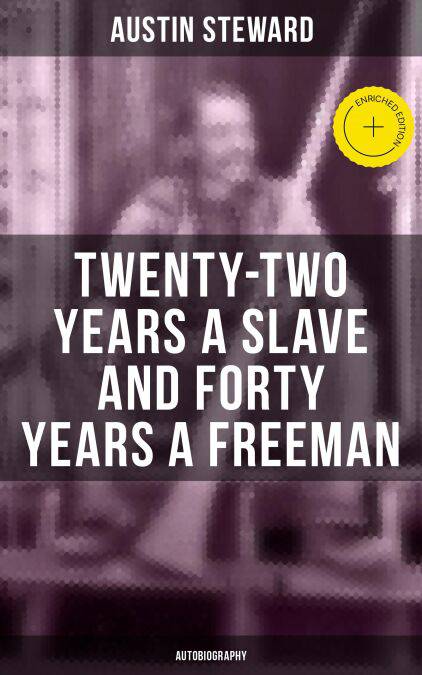
- Afhalen na 1 uur in een winkel met voorraad
- Gratis thuislevering in België vanaf € 30
- Ruim aanbod met 7 miljoen producten
- Afhalen na 1 uur in een winkel met voorraad
- Gratis thuislevering in België vanaf € 30
- Ruim aanbod met 7 miljoen producten
Zoeken
Twenty-Two Years a Slave and Forty Years a Freeman (Autobiography) E-BOOK
Enriched edition.
Austin Steward
E-book | Engels
€ 1,99
+ 1 punten
Omschrijving
Austin Steward's autobiographical work 'Twenty-Two Years a Slave and Forty Years a Freeman' is a poignant account of his life as an African American man living in the early 19th century. The book details his experiences as a slave for over two decades, highlighting the harsh realities of slavery and the resilience of the human spirit. Steward's narrative is imbued with raw emotion and vivid descriptions, providing readers with a window into the past and a deeper understanding of the struggles faced by enslaved individuals during that time period. His literary style is straightforward yet powerful, making the book a compelling read for those interested in history and social justice issues. Steward's autobiography also serves as a valuable primary source for scholars studying African American history and the abolitionist movement. Through his writing, Steward sheds light on the complexities of race relations in America and the long-lasting impact of slavery on individuals and society as a whole. I highly recommend 'Twenty-Two Years a Slave and Forty Years a Freeman' to readers looking to expand their knowledge of American history and gain insight into the lived experiences of marginalized communities.
In this enriched edition, we have carefully created added value for your reading experience:
- A succinct Introduction situates the work's timeless appeal and themes.
- The Synopsis outlines the central plot, highlighting key developments without spoiling critical twists.
- A detailed Historical Context immerses you in the era's events and influences that shaped the writing.
- A thorough Analysis dissects symbols, motifs, and character arcs to unearth underlying meanings.
- Reflection questions prompt you to engage personally with the work's messages, connecting them to modern life.
- Hand‐picked Memorable Quotes shine a spotlight on moments of literary brilliance.
- Interactive footnotes clarify unusual references, historical allusions, and archaic phrases for an effortless, more informed read.
In this enriched edition, we have carefully created added value for your reading experience:
- A succinct Introduction situates the work's timeless appeal and themes.
- The Synopsis outlines the central plot, highlighting key developments without spoiling critical twists.
- A detailed Historical Context immerses you in the era's events and influences that shaped the writing.
- A thorough Analysis dissects symbols, motifs, and character arcs to unearth underlying meanings.
- Reflection questions prompt you to engage personally with the work's messages, connecting them to modern life.
- Hand‐picked Memorable Quotes shine a spotlight on moments of literary brilliance.
- Interactive footnotes clarify unusual references, historical allusions, and archaic phrases for an effortless, more informed read.
Specificaties
Betrokkenen
- Auteur(s):
- Uitgeverij:
Inhoud
- Aantal bladzijden:
- 238
- Taal:
- Engels
Eigenschappen
- Productcode (EAN):
- 9788027240487
- Verschijningsdatum:
- 20/03/2018
- Uitvoering:
- E-book
- Beveiligd met:
- Digital watermarking
- Formaat:
- ePub

Alleen bij Standaard Boekhandel
+ 1 punten op je klantenkaart van Standaard Boekhandel
Beoordelingen
We publiceren alleen reviews die voldoen aan de voorwaarden voor reviews. Bekijk onze voorwaarden voor reviews.








